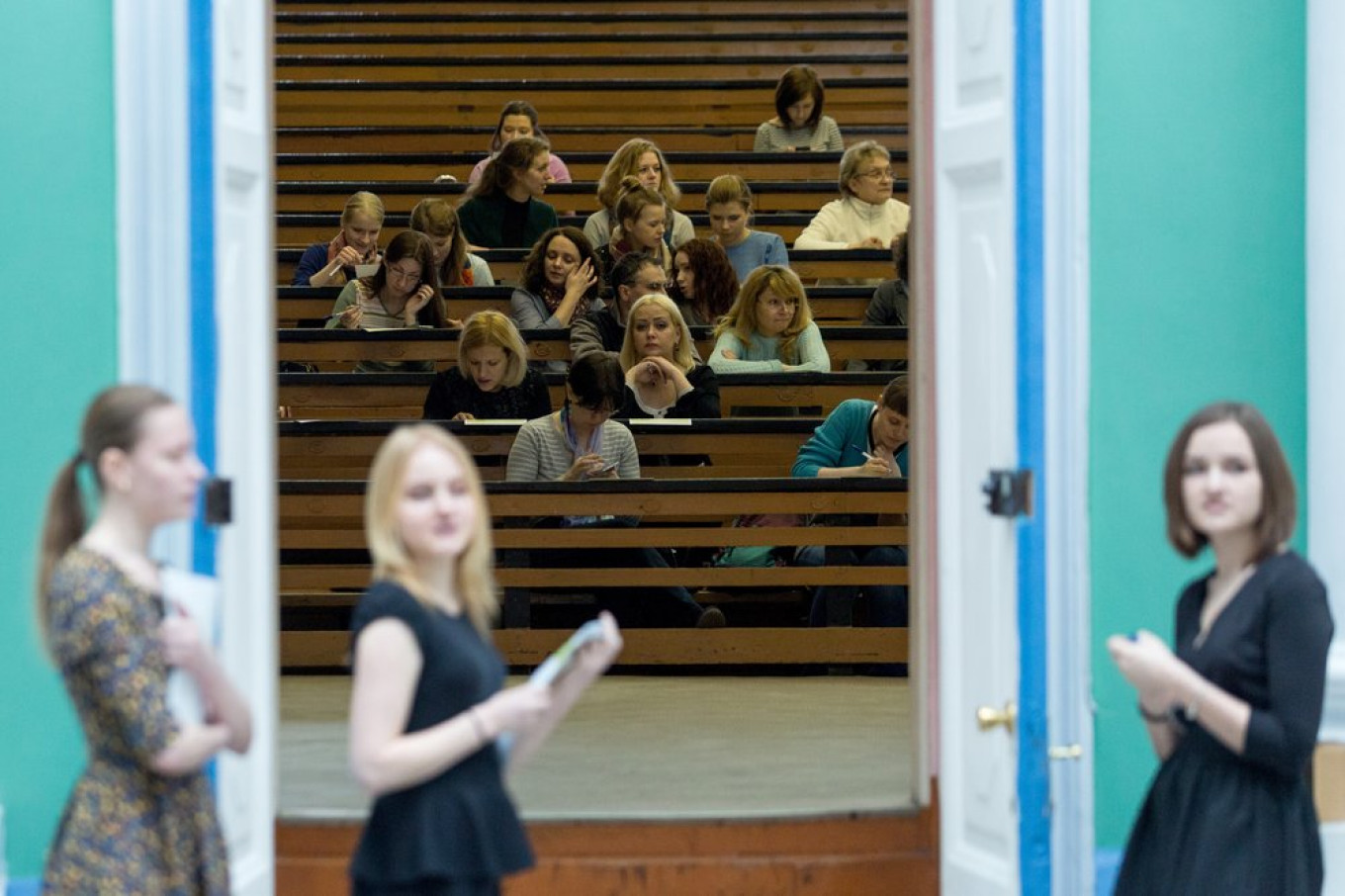
The number of people studying Russian worldwide has halved in the 30 years since the Soviet Union collapsed and is anticipated to decline further, according to state estimates cited by the RBC news website Thursday.
Russian ranks as the world’s 10th-most widespread language with speakers in 27 countries, according to a report by the Higher Education Ministry’s subsidiary obtained by RBC. President Vladimir Putin has recently accused “cave-dwelling Russophobes” of attacking the language.
The number of Russian language learners has fallen from 74.6 million in the early 1990s to 38.2 million in 2018, the ministry’s subsidiary, the Center for Scientific Research, said.
“If nothing is done, the situation may become tragic by 2025,” co-author Alexander Arefyev told RBC.
According to the cited research, the number of students learning Russian outside ex-U.S.S.R. republics fell from 20 million to a little over 1 million.
The research center forecasts the total number of Russian speakers worldwide to decline from 243 million in 2015 to 215 million in 2025.
However, the number of Russian speakers in the United States, Canada, Australia and New Zealand has collectively increased from 1.2 million to 4 million between 1990 and 2015, RBC reported.
Putin has wielded the Russian language as a form of soft power. In widely shared remarks during a Kremlin meeting this month, he called for an electronic version of the Great Russian Encyclopedia to replace Wikipedia.
“I am telling you quite seriously that in the countries with which economic and political cooperation has begun to revive, there is a surge in interest in the Russian language,” he had said.
Russia has long accused its ex-Soviet satellites in Eastern Europe of discriminating against Russian speakers and the language.
